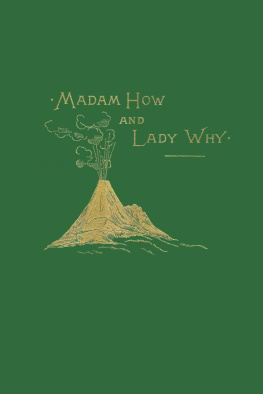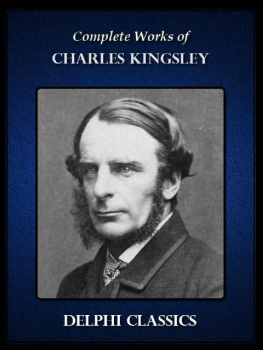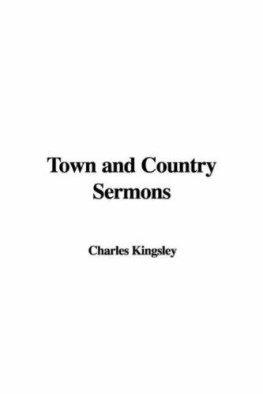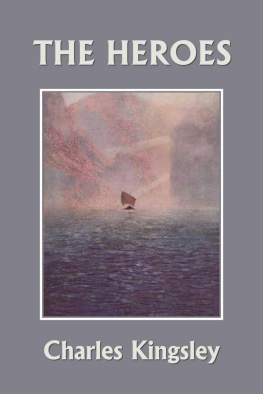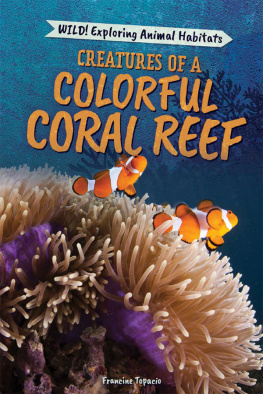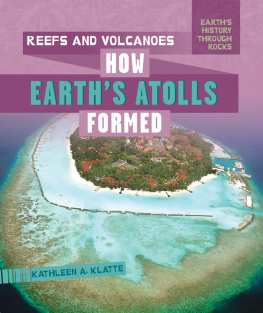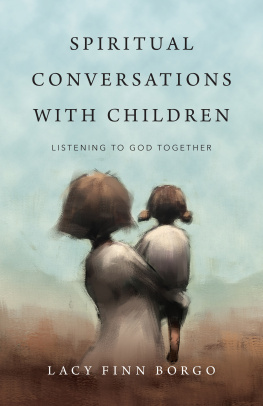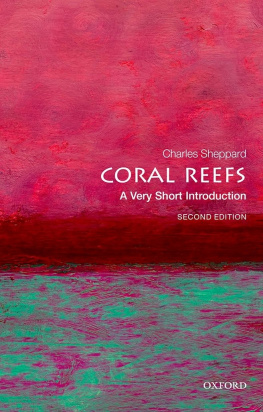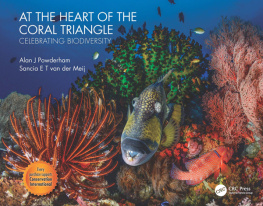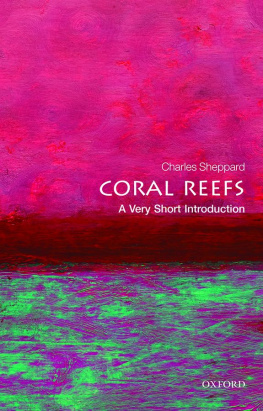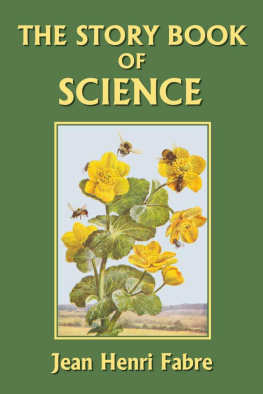Charles Kingsley - Madam How and Lady Why
Here you can read online Charles Kingsley - Madam How and Lady Why full text of the book (entire story) in english for free. Download pdf and epub, get meaning, cover and reviews about this ebook. year: 2006, publisher: Yesterdays Classics, genre: Art. Description of the work, (preface) as well as reviews are available. Best literature library LitArk.com created for fans of good reading and offers a wide selection of genres:
Romance novel
Science fiction
Adventure
Detective
Science
History
Home and family
Prose
Art
Politics
Computer
Non-fiction
Religion
Business
Children
Humor
Choose a favorite category and find really read worthwhile books. Enjoy immersion in the world of imagination, feel the emotions of the characters or learn something new for yourself, make an fascinating discovery.
- Book:Madam How and Lady Why
- Author:
- Publisher:Yesterdays Classics
- Genre:
- Year:2006
- Rating:3 / 5
- Favourites:Add to favourites
- Your mark:
- 60
- 1
- 2
- 3
- 4
- 5
Madam How and Lady Why: summary, description and annotation
We offer to read an annotation, description, summary or preface (depends on what the author of the book "Madam How and Lady Why" wrote himself). If you haven't found the necessary information about the book — write in the comments, we will try to find it.
Madam How and Lady Why — read online for free the complete book (whole text) full work
Below is the text of the book, divided by pages. System saving the place of the last page read, allows you to conveniently read the book "Madam How and Lady Why" online for free, without having to search again every time where you left off. Put a bookmark, and you can go to the page where you finished reading at any time.
Font size:
Interval:
Bookmark:
All rights reserved. No part of this book may be reproduced or retransmitted in any form or by any means without the written permission of the publisher.
This edition, first published in 2010 by Yesterday's Classics, an imprint of Yesterday's Classics, LLC, is an unabridged republication of the work originally published by Macmillan and Co. in 1891. This title is available in a print edition (ISBN 978-1-59915-023-9).
Yesterday's Classics republishes classic books for children from the golden age of children's literature, the era from 1880 to 1920. Many of our titles are offered in high-quality paperback editions, with text cast in modern easy-to-read type for today's readers. The illustrations from the original volumes are included except in those few cases where the quality of the original images is too low to make their reproduction feasible. Unless specified otherwise, color illustrations in the original volumes are rendered in black and white in our print editions.
M Y D EAR B OYS, when I was your age, there were no such children's books as there are now. Those which we had were few and dull, and the pictures in them ugly and mean: while you have your choice of books without number, clear, amusing, and pretty, as well as really instructive, on subjects which were only talked of fifty years ago by a few learned men, and very little understood even by them. So if mere reading of books would make wise men, you ought to grow up much wiser than us old fellows. But mere reading of wise books will not make you wise men: you must use for yourselves the tools with which books are made wise; and that isyour eyes, and ears, and common sense.
Now, among those very stupid old-fashioned boys' books was one which taught me that; and therefore I am more grateful to it than if it had been as full of wonderful pictures as all the natural history books you ever saw. Its name was "Evenings at Home;" and in it was a story called "Eyes and No Eyes;" a regular old-fashioned, prim, sententious story; and it began thus:
"Well, Robert, where have you been walking this afternoon?" said Mr. Andrews to one of his pupils at the close of a holiday.
OhRobert had been to Broom Heath, and round by Camp Mount, and home through the meadows. But it was very dull. He hardly saw a single person. He had much rather have gone by the turnpike-road.
Presently in comes Master William, the other pupil, dressed, I suppose, as wretched boys used to be dressed forty years ago, in a frill-collar, and skeleton monkey-jacket, and tight trousers buttoned over it, and hardly coming down to his ankles; and low shoes, which always came off in sticky ground; and terribly dirty and wet he is: but he never (he says) had such a pleasant walk in his life; and he has brought home his handkerchief (for boys had no pockets in those days much bigger than keyholes) full of curiosities.
He has got a piece of mistletoe, wants to know what it is; and he has seen a woodpecker, and a wheat-ear, and gathered strange flowers on the heath; and hunted a peewit because he thought its wing was broken, till of course it led him into a bog, and very wet he got. But he did not mind it, because he fell in with an old man cutting turf, who told him all about turf-cutting, and gave him a dead adder. And then he went up a hill, and saw a grand prospect; and wanted to go again, and make out the geography of the country from Cary's old county maps, which were the only maps in those days. And then, because the hill was called Camp Mount, he looked for a Roman camp, and found one; and then he went down to the river, and twenty things more; and so on, and so on, till he had brought home curiosities enough, and thoughts enough, to last him a week.
Whereon Mr. Andrews, who seems to have been a very sensible old gentleman, tells him all about his curiosities: and then it comes outif you will believe itthat Master William has been over the very same ground as Master Robert, who saw nothing at all.
Whereon Mr. Andrews says, wisely enough, in his solemn old-fashioned way
"So it is. One man walks through the world with his eyes open, another with his eyes shut; and upon this difference depends all the superiority of knowledge which one man acquires over another. I have known sailors who had been in all the quarters of the world, and could tell you nothing but the signs of the tippling-houses, and the price and quality of the liquor. On the other hand, Franklin could not cross the Channel without making observations useful to mankind. While many a vacant, thoughtless youth is whirled through Europe without gaining a single idea worth crossing the street for, the observing eye and inquiring mind find matter of improvement and delight in every ramble. You then, William, continue to use your eyes. And you, Robert, learn that eyes were given to you to use."
So said Mr. Andrews: and so I say, dear boysand so says he who has the charge of youto you. Therefore I beg all good boys among you to think over this story, and settle in their own minds whether they will be Eyes or No Eyes; whether they will, as they grow up, look and see for themselves what happens: or whether they will let other people look for them, or pretend to look, and dupe them, and lead them aboutthe blind leading the blind, till both fall into the ditch.
I say "good boys;" not merely clever boys, or prudent boys: because using your eyes, or not using them, is a question of doing Right or doing Wrong. God has given you eyes; it is your duty to God to use them. If your parents tried to teach you your lessons in the most agreeable way, by beautiful picture-books, would it not be ungracious, ungrateful, and altogether naughty and wrong, to shut your eyes to those pictures, and refuse to learn? And is it not altogether naughty and wrong to refuse to learn from your Father in Heaven, the Great God who made all things, when He offers to teach you all day long by the most beautiful and most wonderful of all picture-books, which is simply all things which you can see, hear, and touch, from the sun and stars above your head to the mosses and insects at your feet? It is your duty to learn His lessons: and it is your interest. God's Book, which is the Universe, and the reading of God's Book, which is Science, can do you nothing but good, and teach you nothing but truth and wisdom. God did not put this wondrous world about your young souls to tempt or to mislead them. If you ask Him for a fish, He will not give you a serpent. If you ask Him for bread, He will not give you a stone.
So use your eyes and your intellect, your senses and your brains, and learn what God is trying to teach you continually by them. I do not mean that you must stop there, and learn nothing more. Anything but that. There are things which neither your senses nor your brains can tell you; and they are not only more glorious, but actually more true and more real than any things which you can see or touch. But you must begin at the beginning in order to end at the end, and sow the seed if you wish to gather the fruit. God has ordained that you, and every child which comes into the world, should begin by learning something of the world about him by his senses and his brain; and the better you learn what they can teach you, the more fit you will be to learn what they cannot teach you. The more you try now to understand things , the more you will be able hereafter to understand men, and That which is above men. You began to find out that truly Divine mystery, that you had a mother on earth, simply by lying soft and warm upon her bosom: and so (as Our Lord told the Jews of old) it is by watching the common natural things around you, and considering the lilies of the field, how they grow, that you will begin at least to learn that far Diviner mystery, that you have a Father in Heaven. And so you will be delivered (if you will) out of the tyranny of darkness, and distrust, and fear, into God's free kingdom of light, and faith, and love; and will be safe from the venom of that tree which is more deadly than the fabled upas of the East. Who planted that tree I know not, it was planted so long ago: but surely it is none of God's planting, neither of the Son of God: yet it grows in all lands and in all climes, and sends its hidden suckers far and wide, even (unless we be watchful) into your hearts and mine. And its name is the Tree of Unreason, whose roots are conceit and ignorance, and its juices folly and death. It drops its venom into the finest brains; and makes them call sense, nonsense; and nonsense, sense; fact, fiction; and fiction, fact. It drops its venom into the tenderest hearts, alas! and makes them call wrong, right; and right, wrong; love, cruelty; and cruelty, love. Some say that the axe is laid to the root of it just now, and that it is already tottering to its fall: while others say that it is growing stronger than ever, and ready to spread its upas-shade over the whole earth. For my part, I know not, save that all shall be as God wills. The tree has been cut down already again and again; and yet has always thrown out fresh shoots and dropped fresh poison from its boughs. But this at least I know: that any little child, who will use the faculties God has given him, may find an antidote to all its poison in the meanest herb beneath his feet.
Font size:
Interval:
Bookmark:
Similar books «Madam How and Lady Why»
Look at similar books to Madam How and Lady Why. We have selected literature similar in name and meaning in the hope of providing readers with more options to find new, interesting, not yet read works.
Discussion, reviews of the book Madam How and Lady Why and just readers' own opinions. Leave your comments, write what you think about the work, its meaning or the main characters. Specify what exactly you liked and what you didn't like, and why you think so.

